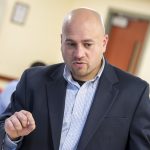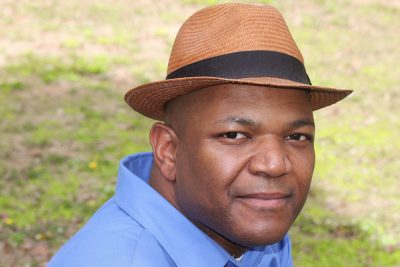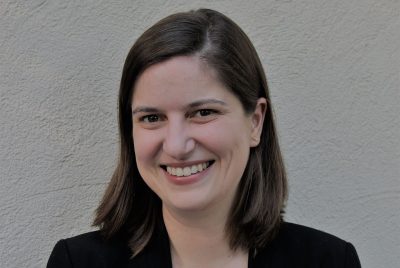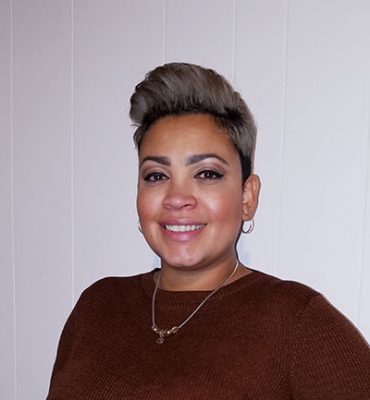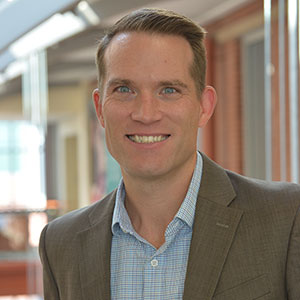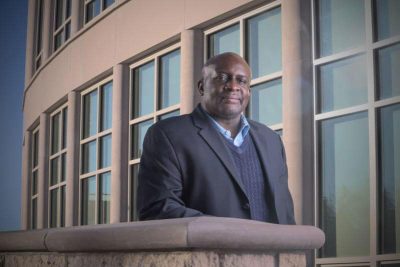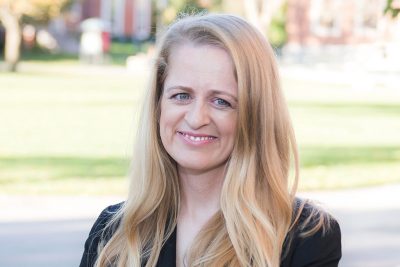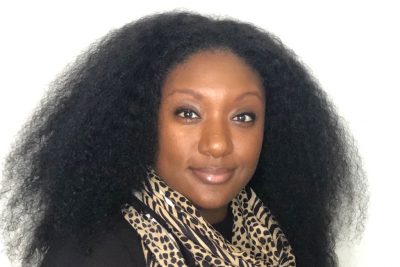Digital Journal (Glenn Mitoma, who is a speaker at the launch event, is mentioned)
Pandemic Hitting Families of Those With Disabilities Harder
Disability Scoop (Sandra Chafouleas is interviewed)
Researchers Lead National Effort to Improve Gifted Ed Programs
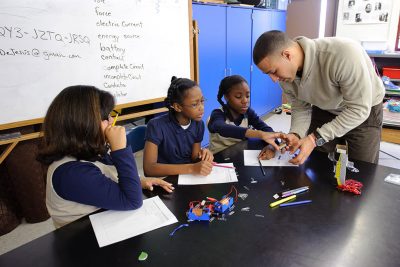
Editor’s Note: The following story originally appeared on UConn Today.
The University of Connecticut has been awarded a $5 million grant from the U.S. Department of Education’s Institute of Education Sciences to examine and strengthen gifted education opportunities for underserved populations through four studies. UConn’s National Center for Research on Gifted Education (NCRGE) will investigate strategies for recognizing and responding to untapped talent and explore the outcomes of gifted education services.
Del Siegle, the Lynn and Ray Neag Endowed Chair for Gifted Education and Talent Development in the Neag School of Education, will direct this five-year project in collaboration with other researchers at UConn and scholars from the University of California Berkeley, the University of California Santa Cruz, the University of Iowa, Michigan State University, and the University of Wisconsin Whitewater. In addition to Siegle, the UConn research team includes D. Betsy McCoach, E. Jean Gubbins, Catherine Little, Daniel Long, and Christopher Rhoads.
“The only way our country will reach its full potential is if every student has an opportunity to reach their potential.”
— Del Siegle, Lynn and Ray Neag Endowed Chair for Gifted Education and Talent Development
Gifted education encompasses a variety of talent development practices used to support students who have been identified as gifted and talented. These practices provide challenging and stimulating experiences designed to enhance and accelerate student learning.
However, research conducted at UConn and elsewhere has shown gifted education programs often are plagued by widespread inequality and inaccessibility. Because of factors such as students’ socioeconomic status, race, and English-speaking skills, many students’ talents go unrecognized, and many schools fail to provide appropriate educational experiences. This can further perpetuate cultural and economic inequalities.

“The only way our country will reach its full potential is if every student has an opportunity to reach their potential,” says Siegle. “This research will move us toward providing improved educational opportunities for students traditionally underrepresented in gifted programs.”
Currently, there is no universally accepted screening process for the identification of students for gifted services. Identification processes vary from state to state and even from school district to school district within some states. Many school districts use a nomination process through which teachers refer individual students, though evidence suggests teachers overlook many talented students.
A universal screening process in which all students are evaluated can improve equitable identification and increase access for students from underserved groups. However, having every student complete assessments can be expensive.
To improve identification systems, the researchers will investigate how to streamline screening processes while also increasing the number of underserved students being identified for gifted programs. This will include searching for ways to reduce the cost of these processes.
Additionally, the team will conduct a study to investigate the long-term benefits of gifted education beyond academic achievement and also a study to explore the effects teachers have on students’ academic successes.
A final study focuses on expanding the use of academic acceleration, the process of placing students in more advanced-level learning experiences that match their skill set.
Presently, schools often refrain from accelerating students. The research team will tackle this issue by developing and testing a universal screening process for acceleration that includes professional learning sessions and online training modules for educators and parents.
Results from these four studies will be disseminated to the public through the NCRGE website, blog, social media, and online training platforms.
Siegle and his team will also intensify and expand training of researchers by holding an advanced training research institute at UConn for professors working in gifted education.
Siegle received his B.S. in elementary education and his M.Ed. in curriculum from Montana State University-Billings and his Ph.D. in special education from UConn. Currently, Siegle resides as the Director of the National Center for Research on Gifted Education.
VIDEO: Parents Turn to Learning Pods as an Alternative
NBC CT (Casey Cobb interviewed, 1:53)
Researchers Lead National Effort to Improve Gifted Ed Programs
UConn Today (National Center for Research on Gifted Education featured)
AUDIO: Educational Ecosystems That Embrace Diversity
Stemify Podcast (Milagros Castillo-Montoya featured)
‘Learning Pods’ Gaining Popularity During Coronavirus Pandemic
Hartford Courant (Casey Cobb interviewed)
Fall 2020 Neag School Hires, Appointments, and Promotions
4 Questions to Ask Now in Preparing Your Child for School
Editor’s Note: The following originally appeared on Psychology Today, where Board of Trustees Distinguished Professor Sandra Chafouleas launched a new blog earlier this summer.
Strategies for Supporting Your Kids’ Social, Emotional, and Behavioral Learning

I recently read a post from a frustrated parent who attended a back-to-school virtual meeting. The parent wanted practical steps on preparing for school, but instead received a lot of information about mindfulness and social-emotional health. The school perhaps missed an opportunity here to engage families in why social, emotional, and behavioral health is so important, and how it is critical for schools and families to partner as we head into fall.
In my area of research, we use a “backpack” metaphor: To be ready to learn, students need backpacks full of tools like pencils and notebooks – but also tools that support how they interact (social), feel (emotional), and act (behavioral). A fully stocked social, emotional, and behavioral backpack helps ready them for whatever may come their way, skills that are critical for managing today’s ever-changing education environment.
How well we – and our kids – cope with challenges currently facing us depends in large part on our behaviors (what we do) and our emotions (how we feel). Our behaviors influence our emotions, and our emotions influence our behaviors; together, they shape how we interact with others as well as how effectively we can learn new things and complete expected tasks. Given the added stressors brought on by the current climate, many schools are putting a great deal of effort into sharing insights about how we can support positive emotions and behaviors in our children.
Choice and control are critical to emotional safety – you can’t control the outcome, such as whether school will be remote or in-person, but can work to control your reaction. This is a vital lesson we can teach our kids.
Families are critical partners in supporting kids’ social, emotional, and behavioral health, and including your child’s voice in the conversation is key. Choice and control are critical to emotional safety – you can’t control the outcome, such as whether school will be remote or in-person, but can work to control your reaction. This is a vital lesson we can teach our kids.
As the school year begins, consider using these four questions to talk with your child as you work together to fill their social, emotional, and behavioral backpack for success.
1. How can we set up our best daily routine for this fall?
Keeping routines as regular and predictable is important to managing emotions. Invite your child to choose from different activity blocks – for example, movement time, together time, learning/work time, personal time, play time, and sleep time. To create predictability, set the expectation that all of these blocks will occur each day, but keep in mind that the arrangement of these blocks can be flexible based on the daily schedule, such as in-person or remote schooling. Make sure to include “bookends” for each day to provide “check-in” and “check-out” times for positive affirmations, validation of feelings, review of expectations, and debriefing on went well or what could have been done differently. If your child is heading to an in-person environment, check out the new CDC back-to-school checklist for other ideas you can add into your routine.
2. How will we know if our routine is working?
As adults, we mentally track our daily activities, from hours spent working or exercising to our food choices. Make a list of behaviors related to your child’s routine – such as schoolwork completed and physical activity – to help your child build understanding of what behaviors are expected of them, and why. Include your child in the conversation about which behaviors and emotions should be on the list. Emotions are just as critical to include; doing so can help explain why behavior expectations were or were not met, and provides insight into which aspects of the routine might need to be adapted. Learning how to define, understand, and express emotions is important to well-being, and families play a critical role in social-emotional learning.
3. When we need to get our feelings back on track, what should we do?
Setting routines and learning how to manage behaviors and emotions will not work all of the time. Have a back-up plan for times when negative emotions take control or your child is having a hard time completing the expected behaviors. Together, you might define how to signal when things seem out of control. The signal might be as simple as a verbal code, hand signal, or a written note. Together, you can also come up with a list of enjoyable behaviors to try when they are not feeling quite right. Your emotion reset list might include calling a friend or family member, playing with a pet, running around the block, or sharing a snack.
4. What else do to we need to think about to be ready for our best fall?
Work hard on keeping the conversation channels open. Having a trusted and caring adult is critical for every child. Listen to them without judgment and affirm how much this situation stinks. Ask what you can do to support how they are relating, feeling, and acting. Consider building this question into the daily routine, perhaps during that evening “check-out” time that provides a chance to connect one-on-one about how they are feeling, what went well that day, and what might be done differently next time.
4 Questions to Ask Now in Preparing Your Child for School
Psychology Today (Sandra Chafouleas publishes post on her new blog)


